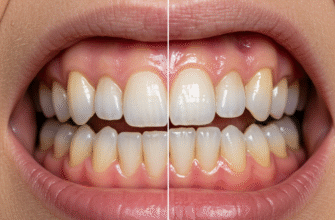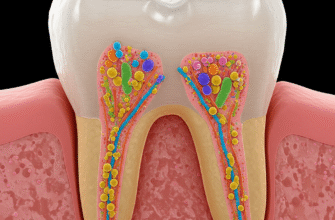The very mention of wisdom tooth extraction can send a shiver down the spine of even the bravest souls. Whispers of swollen faces, days of liquid diets, and general misery abound. It’s a dental procedure that seems to come pre-packaged with a reputation for being universally difficult and painful. But is this reputation entirely deserved? Or are we letting the more dramatic tales overshadow a more nuanced reality? It’s time to peel back the layers of fear and misinformation and explore whether every wisdom tooth removal is the ordeal it’s made out to be.
Understanding Those Third Molars
Wisdom teeth, or third molars, are the last set of teeth to emerge, usually making their appearance in our late teens or early twenties. Think of them as the latecomers to the party in your mouth. For some lucky individuals, these teeth erupt without a hitch, aligning perfectly with existing teeth and causing no problems. However, for many, the arrival of wisdom teeth isn’t so smooth. Our modern jaws are often smaller than those of our ancestors, meaning there’s simply not enough room for these final molars to comfortably fit. This lack of space can lead to a variety of issues, such as impaction (where the teeth get stuck beneath the gum line or emerge at an awkward angle), crowding of other teeth, or difficulties with cleaning, which can lead to discomfort or other dental concerns. It’s these potential problems that often necessitate their removal.
Where Does the “Difficult” Reputation Come From?
If not all extractions are a battle, why does this perception persist so strongly? Several factors contribute to this widespread belief. Firstly, let’s be honest, people are far more likely to share dramatic or negative experiences than mundane, straightforward ones. A quick, uneventful wisdom tooth removal doesn’t make for a very exciting story over dinner or on social media. The “horror stories” get amplified, passed around, and unfortunately, tend to stick in our collective consciousness.
Then there’s the undeniable fact that some wisdom tooth extractions are genuinely complex. When a tooth is impacted, meaning it’s trapped beneath the gum tissue or bone, or if it’s growing in at a strange angle, the procedure to remove it naturally becomes more involved than pulling a tooth that has fully erupted in a normal position. These more complicated cases often require a surgical approach, which understandably contributes to the “difficult” narrative. The issue is that these specific, more challenging scenarios often get generalized to represent all wisdom tooth extractions.
Finally, the power of anxiety cannot be underestimated. Dental anxiety is very real, and the anticipation of any surgical procedure, especially one with a scary reputation, can heighten our perception of pain and difficulty. Sometimes, the fear itself is a significant part of the perceived ordeal.
Not a One-Size-Fits-All Procedure
The truth is, wisdom tooth extraction isn’t a monolithic experience. The ease or complexity of the procedure varies dramatically from person to person, and even from tooth to tooth within the same person’s mouth. Dentists and oral surgeons assess a multitude of factors before even scheduling an extraction, let alone beginning the procedure.
Key Factors at Play
- Position and Eruption: Is the wisdom tooth fully erupted (completely visible above the gum line)? Is it partially erupted? Or is it fully impacted, hidden beneath gum and possibly bone? A fully erupted tooth, sitting in a good position, is often much simpler to remove than one that’s deeply impacted or angled awkwardly towards its neighbors.
- Root Complexity: The roots of wisdom teeth can be unpredictable. Some are relatively straight and conical, making for an easier extraction. Others might be curved, hooked, splayed out in multiple directions, or even fused with the bone or adjacent teeth. The more complex the root structure, the more care and time the extraction might take.
- Age of the Patient: Generally, wisdom tooth extractions can be less complicated in younger patients, typically in their late teens or early twenties. At this stage, the roots of the wisdom teeth may not be fully formed, and the surrounding bone is often less dense, which can make the removal process smoother and recovery quicker.
- Overall Jaw and Gum Health: The health of the surrounding tissues also plays a role. Healthy gums and strong bone structure generally contribute to a more predictable procedure and healing process.
A dental professional will use tools like dental X-rays, and sometimes even 3D imaging (CBCT scans), to get a clear picture of these factors. This detailed assessment allows them to predict the potential difficulty, plan the best approach, and discuss with you what to expect.
The Surprisingly Smooth Extraction
Now, let’s talk about the experiences that don’t make the headlines: the straightforward wisdom tooth extractions. For many people, especially if the tooth is fully erupted and has relatively uncomplicated roots, the removal can be surprisingly quick and uneventful. In such cases, the procedure might feel very similar to having any other tooth extracted.
Imagine a wisdom tooth that has come in straight, has enough space, but is perhaps a bit difficult to clean, leading to a recommendation for removal to prevent future issues. Or perhaps it’s opposing a tooth that’s already been lost. In these scenarios, the extraction can often be performed with relative ease by a general dentist or an oral surgeon. The recovery can also be much milder than the dreaded tales suggest, with minimal discomfort and a quick return to normal activities. These “easy” extractions happen all the time; they just don’t generate as much buzz.
It’s a widely accepted fact within the dental community that many wisdom tooth extractions are routine and uncomplicated. When a wisdom tooth is fully erupted, in a favorable position, and has a simple root structure, its removal can be very similar to that of any other tooth. Dental professionals utilize thorough examinations and imaging to plan these procedures effectively, aiming for patient comfort and efficient removal.
The Professional’s Role in Easing the Process
It’s crucial to remember that dentists and oral surgeons are highly trained professionals with extensive experience in managing wisdom teeth. They’ve seen it all, from the simplest removals to the most complex surgical cases. Their expertise is paramount in ensuring the procedure is as smooth and comfortable as possible, regardless of the tooth’s condition.
Modern dental practices are equipped with advanced diagnostic tools that allow for precise planning. This careful preparation helps to minimize surprises during the extraction itself. The goal is always to remove the tooth in the most efficient and least invasive way possible. They will discuss the type of anesthesia appropriate for your specific case and level of anxiety, ensuring you are comfortable throughout the procedure.
Furthermore, these professionals are adept at managing not just the physical aspect but also the psychological one. They understand patient anxieties and are usually very good at explaining procedures, answering questions, and providing reassurance.
What About Comfort?
The fear of pain is perhaps the biggest contributor to the dread surrounding wisdom tooth extractions. However, modern dentistry has made huge strides in pain management. For the procedure itself, local anesthesia is highly effective at numbing the area, so you shouldn’t feel pain during the extraction, though you might be aware of pressure or movement.
For more complex cases or for patients with significant anxiety, dentists and oral surgeons can discuss various sedation options. The aim is to make the experience as stress-free and comfortable as possible. Post-procedure discomfort is also managed. Your dental professional will provide guidance on how to manage any swelling or soreness, typically involving simple measures that can significantly ease the recovery period. Following their advice on rest, diet (soft foods initially!), and oral hygiene is key to a smoother healing process.
Your Best Ally: Open Communication
If you’re facing the prospect of wisdom tooth extraction, one of the most empowering things you can do is to have an open and honest conversation with your dentist or oral surgeon. Don’t let the myths and horror stories dictate your expectations. Instead, get information that is specific to your situation.
Ask questions! What do your X-rays show? Is the tooth impacted? What does the root structure look like? What type of procedure do they anticipate? What are the options for anesthesia and pain management? Understanding your specific case and the planned approach can demystify the process and significantly reduce anxiety. Remember, there are no silly questions when it comes to your health and comfort. Your dental team is there to help you feel informed and at ease.
Moving Beyond the Myth
So, are all wisdom tooth extractions difficult? The resounding answer is no. While some are certainly more complex than others, many are straightforward, routine procedures with manageable recovery periods. The narrative of universal difficulty is a myth, fueled by a bias towards dramatic storytelling and a lack of information about the more common, uneventful extractions.
By understanding the factors that influence complexity, trusting in the expertise of dental professionals, and engaging in open communication about your own specific case, you can approach wisdom tooth extraction with a more balanced and realistic perspective. Don’t let fear founded on generalization cloud your experience. Seek personalized information and remember that, for many, it’s a far less daunting procedure than its reputation suggests.








